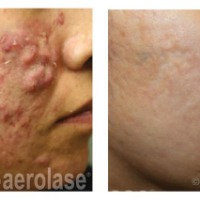Vitamins are organic compounds essential for normal growth and nutrition. We have to get them from our diet because our body cannot make them. They help our bodies function, but a few of them can actually be toxic when too much is consumed.

Model Photo
Vitamin C, and the B vitamins are water soluble and your body does not store them so they are not normally dangerous. Essential vitamins D, E, K, and A are fat soluble vitamins, which means your body will store them readily and you can build up too much.
Vitamin K helps the body convert food into energy, aid in making blood, and helps maintain healthy bones. The adequate intake level established for vitamin K is 120 mg/day for men and 90 mg/day for women. The National Academies Press provides that because no ill-effects have been reported by individuals consuming more than this amount, no upper intake level has been established.
Vitamin A is best known for it's role in eye health. It also helps the body protect itself from infection. The Dietary Reference Intake (DRI) for vitamin A is 900mg for men and 700mg for women. The Tolerable Upper Intake Level (UL) for adults is set at 3,000mg/day. According to the U.S. Institute of Medicine, the Lowest Observed Adverse Effect Level (LOAEL) for vitamin A, when taken over an extended period of time is 21,600 IU. Most multivitamins contain below 10,000 IU. Excess of vitamin A is toxic and may cause birth defects, liver problems, reduced bone mineral density, coarse bone growths, skin discoloration, hair loss, excessive skin dryness, and intra-cranial hypertension.
Vitamin E is well known for its benefits for hair and skin but its biological functions are protecting cells from oxidative stress and maintaining the flexibility of red blood cells. The DRI for vitamin E is 15 IU for men and women. The UL has been established as 1,000 IU. Toxicity is rare so there is no UL, but you don't need more than 1,000 IU. Toxicity can lead to blotchy skin, increased bleeding, increased triglycerides, decreased production of thyroid hormones, decreased activity of vitamin K, and increased hemorrhaging from anti-coagulant medications or aspirin.
Vitamin D is the sunshine vitamin because the only true way we can get it is from direct exposure to sunlight. Vitamin D's role is to help with the absorption of calcium so it is vital to bone health. The DRI is 400 IU per day. Overdose has been observed at 1925mg/day, which converts to 77,000 IU. Toxicity causes over-calcification of the bones, soft tissues, heart and kidneys. This can also lead to hypertension and kidney stones. However, because most people now associate the sun with skin cancer, many people are actually deficient in vitamin D.
The best way to ensure you're getting all your vitamins at the right amount is to invest in a good daily multi-vitamin. Paired with a diet of plenty of fruits and vegetables, there's no way you can go wrong.






